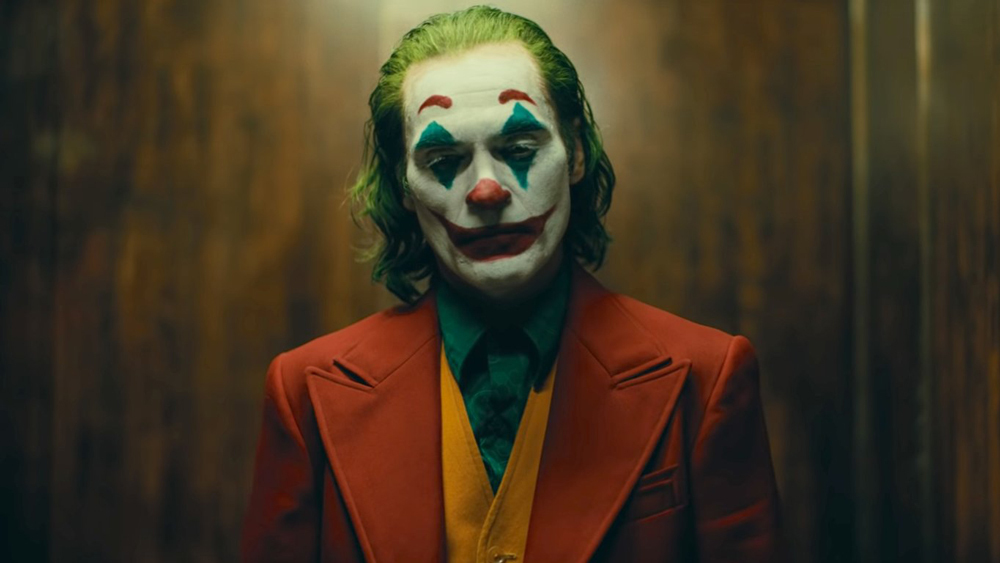Everyone has been raving about Joker for various reasons so I plonked my butt down to watch it. I’ve always been a DC fan as opposed to Marvel, but most DC movies are just weighed down with action scenes and special effects. Marvel movies have better storytelling, but I was never very invested in any of the characters because I didn’t relate to them. It also felt like Marvel was trying to get its audience to repeatedly throw money to buy tickets to see their overly convoluted sagas, which I obviously did not keep up with.
But with the Joker, something is different. He is one of DC’s iconic villains and many men have identified with him, so much so that they have started dressing up as him for Halloween. We’ve had many versions of this villain played by various actors. I won’t do a comparison by rather, focus on how well of badly the storytelling is done based on one of the most famous origin stories that made the character so iconic.
And what can I say? This is damn good storytelling.
Spoilers below:
Arthur Fleck cannot catch a break. He’s a clown for hire and his current gig at the start of the movie shows that he’s a victim of bullying. A bunch of kids steal the sign that he’s holding outside a store that sells musical instruments and he chases after them relentlessly. Eventually, when he corners the kids, they smash the sign to smithereens. Later, his boss berates him for losing the sign and takes it out of his paycheck, refusing to listen to him. This utter refusal to listen and empathise the already mentally unstable joker is a catalyst for his downfall.
Everywhere, the Joker is bullied. His state-mandated therapist refuses to listen to him, his co-worker, Randall, issues him a gun and it falls out of Arthur’s pocket when he is doing a gig at a children’s hospital. Randall doesn’t say that he gave Arthur the gun and stated that Arthur bought it, causing Arthur to get fired. Later, three businessmen bully Arthur on the train, and Arthur uses the gun to shoot and kill them. After this juncture, he spirals down further and further into insanity, despair, and re-directing the anger and hurt he has faced back at the people who hurt him in the first place.
Every single time there is a serial killer on the loose, or a crime takes place, people like to ogle at their TV screens or watch the Netflix special. There will be tons and tons of coverage by news anchors trying to dig deeper into the truth and trying to find out what drove him to kill. In this movie, the answer is simple–society.
I’m not saying that every individual in society itself causes the Joker to become the villain that he is, but it is what the people close to him, and by extension, how society treats people, especially those who are different that causes the Joker to be who he is. His employer and his state-mandated therapist doesn’t listen to him, or give him “human decency”, as Arthur himself has said. Already, when we meet him at the start of the movie, we see that he’s having a rough time in life, but no one is there to empathise with him or hear him out. Everyone is struggling too and they either don’t have enough emotional resources to help Arthur (like his state-mandated therapist) or choose to be a jerk (his colleague, Randall) because it’s easier that way.
Even the people in power let him down. Arthur goes to Thomas Wayne, because his mother once worked for him, alleging that he could be Wayne’s son, but even though that does not turn out to be true, Wayne is cold and uncaring. Even the late-night TV host humiliated Arthur, but only realised that Arthur could be used to boost ratings once his stand-up comedy routine resonated with the viewers. This lack of empathy, coupled with the anger that the typical working men have accumulated through working for big men like Thomas Wayne, results in the climax of the movie, where all hell breaks loose.
What does it say about society? I have heard that many reviewers talked about how the Joker is a metaphor for incels because Arthur makes up this imaginary relationship with his neighbour after they share a moment, but that is not the point. It’s not targeted at a certain group of people. It’s about us. The film is saying that capitalism, hypercapitalism, doesn’t work because it makes monsters of us all, and what we are doing — this endless sabotage in this dog-eat-dog world — makes us more lonely, scared and unhinged. There is no happy ending for Arthur because society does not change. No one is nice to him because no one knows how to be nice.
It seems that the film’s answer is this — that we need to rethink the whole system we are under as a society, and create a more humane one where everyone looks out for one another, lest everyone remains, miserable chained to jobs they hate because they need to get by somehow.
The Joker’s laugh betrays his depression, his helplessness and loneliness — the longing to be accepted for who he is and to be listened to — only for all of these longings and vulnerabilities to be laughed at. He takes the mocking laughter of society and eerily flings it back at those who have laughed at him, thereby terrorising them in this endless tit for tat.
This movie is a pertinent warning to all of us — that the system we’re under is broken, and that it should change, lest all that is left in our faces are haunted and empty smiles because we did not try to fight the system we’re under.
